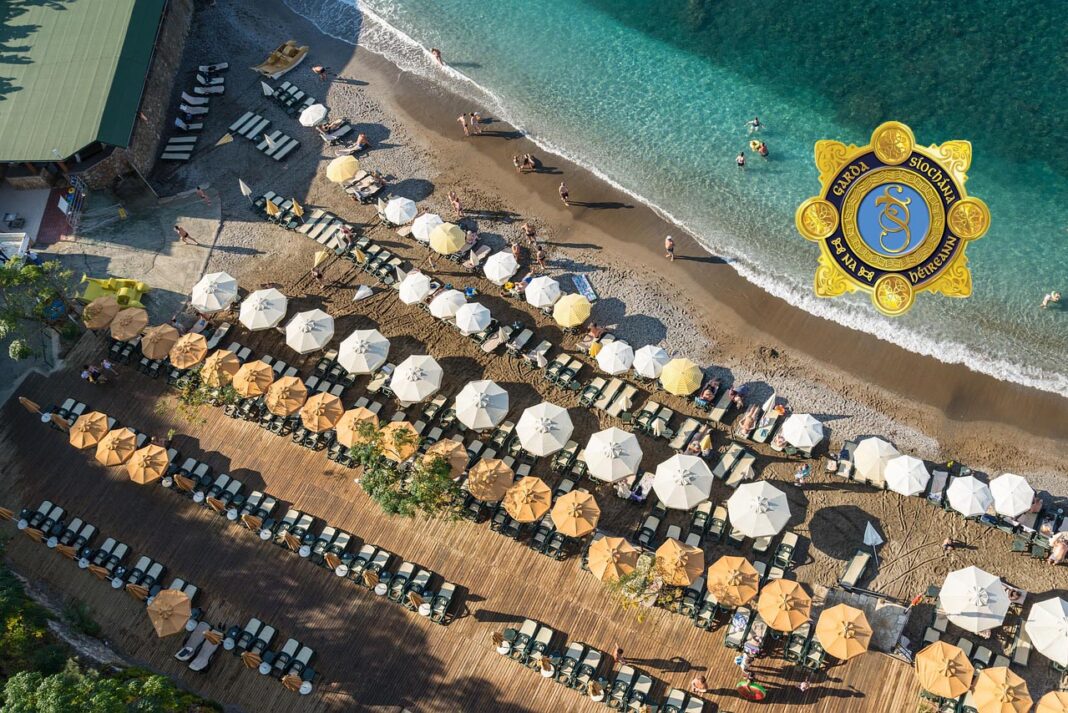Gardaí in Clare have issued advice anyone planning holidays this year as scams are likely to catch people out.
Holiday fraud occurs every year and unfortunately some unsuspecting members of the public are caught out by offers or by other fraudulent means
Many people are already searching online for holidays both at home and abroad but are being warned to be aware of offers that sound too good to be true.
As most flight, holiday and package holidays are booked online, the risk of fraud is ever present.
Online Booking
Online travel bookings amount to 70% of bookings. Criminals now see this as a lucrative source of illegal income and have devised clever and convincing ways to defraud customers. The average cost of an online holiday scam is €2500.
What does this scam look like?
Ghost Brokering where they post ‘sponsored’ adverts that offer special deals of package or accommodation offers. Customers enter their details on a dedicated webpage and then are contacted via social media with special deals created from their request, which makes them trust the offer and purchase in full or send bank details to confirm.
Fake offers of accommodation on social media with images and details scrapped from previous adverts. Special deals at knockdown prices or a recent cancellation selling cheap: “Just send your payment before it’s gone.”
An idyllic getaway at a charming location – cheap as chips. “Just pay the seller directly to get the best price. “
Fake competition offers of free flights or holidays where you are asked to share the message and then enter your details on a linked website.
Last minute availability for the holiday everyone wants. “Just contact the seller directly by email and pay them directly too.”
Site squatting where a fraudster registers a website similar to a trusted one and scrapes their content to create a fake site offering the same or similar content that does not exist.
Purpose of Online Booking Fraud
These types of frauds have two intentions.
Entice you to buy a non-existent holiday and pay directly to the scammer or via money transfer so the other individual is difficult to trace or the money is gone quickly.
Entice you to enter private banking details on a fake page, share them via social media, or email so the other party can then access your account and clean it out.
Fraud Prevention Advice:
Is the price unbelievable or a ‘don’t miss it’ offer – be careful of these offers.
Check the website spelling and address – is it www.airbnb.com or is it www.airbnb.Irl.com, which does not exist. Is it what it should be or what you would expect it to be?
Check ITAA (Irish Travel Agents Association) or for the Tour Operators Licence of the seller. Check with ITAA or Failte Ireland to see if they are actually licenced or registered, or if they are known fraudulent sites and offers.
If it is in a link in an email or social media message, hover over the link first. Does it go where it should?
Copy out a few of the images on the offer or page and google image search them to see if they have been used before.
Check for reviews for the site, the location and especially the seller. Are they good or equally important, are there none?
Check the page or communication for language or spelling mistakes but remember AI has made it easier to ensure these do not occur so the absence of any does not mean it is legitimate.
When you are paying online check, the website has the https:// link. While this does not guarantee the page is legitimate, it does confirm that payments are secure and encrypted.
Does the website have a physical contact address and number or chat service? Check the physical address on Google maps to see if it is correct or actually exists.
Be careful about checking up holidays or sending private details including payment details using a public Wi-Fi that can be sniffed online.
If you need a visa to enter the country you intend visiting, make sure you use the official website to obtain the visa. Just because it is, first in the list of sites when you search does not mean it is official.
If it is a competition for flights, do not provide personal details on the linked website. Check the link first and be careful what you share.
Fake emails telling you to confirm your flight by clicking on a link. The message usually does not specify where or when you are travelling but generically tells you to confirm your upcoming holiday by following the link. Only use the official website or App to confirm any part of your holiday.
Never make full payment in advance and never by direct payment or money transfer. Always pay in stages and insist on paying by card, which brings security and peace of mind.
